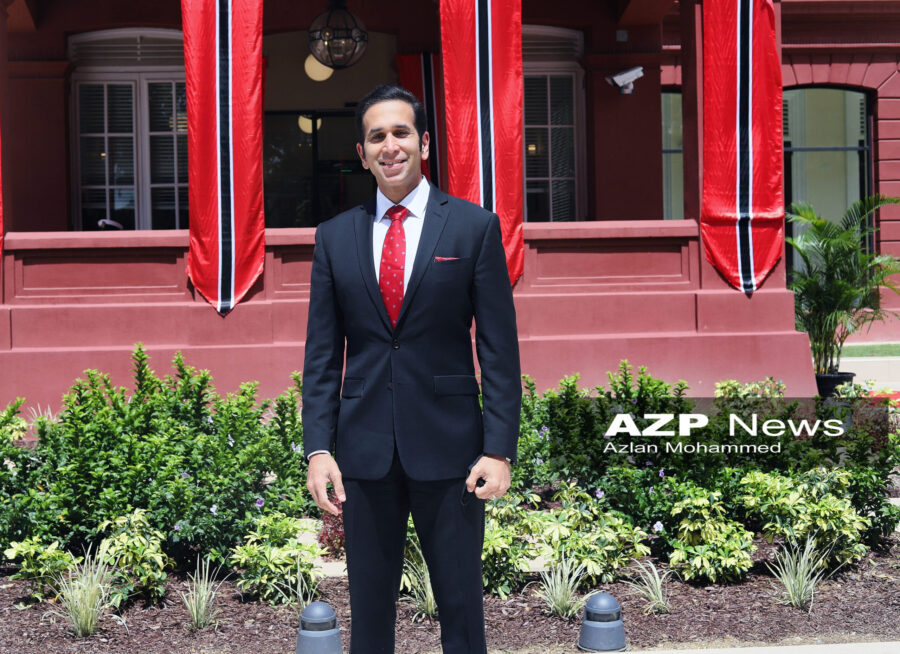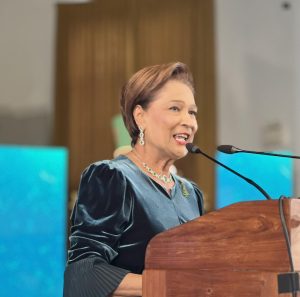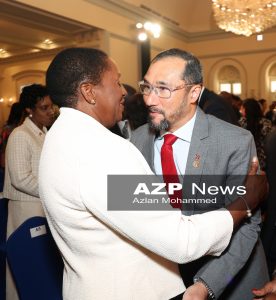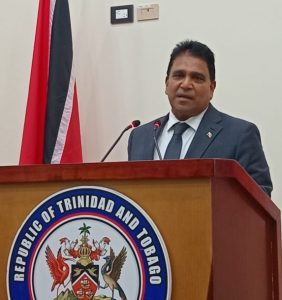‘You have the right to swing your arm but you don’t have the right for your fist to connect with someone else. There are balances of rights there.’ – AG Faris Al-Rawi
By Prior Beharry
PRESIDENT of the Industrial Court Deborah Thomas-Felix has to recuse herself from any matters dealing with compulsory vaccination for public servants.
This according to Attorney General Faris Al-Rawi during a virtual press conference on Tuesday.

He was speaking about changing the laws to have public servants vaccinated for Covid-19 or they will not be paid as announced by Prime Minister Dr Keith Rowley on Saturday.
Al-Rawi was responding to a question from AZPNews.com about statements made by Thomas-Felix on September 16 at the opening of the 2021/2022 law term of the Industrial Court.

She had said, “While generally speaking, a vaccination policy may be included as a condition for new employment, there are much heated public debates on whether mandatory vaccinations policies can be added in the workplace to existing terms and conditions of employment.
“The main issue, as I see it, is whether a mandatory Covid-19 vaccination policy can be introduced as a new term of employment to existing employees without discussion or consultation.
“In other words, can such a policy be introduced unilaterally by employers in the workplace? The short answer to that question is No.”

Al-Rawi said that the issue of making public servants take the Covid-19 vaccine to continue to work was a matter for the law and not collective bargaining agreements.
He said, “The collective bargaining agreements will be as they are we are proposing a change to the law.”

Al-Rawi said one of the strong-held views was that collective bargaining processes are outside of the parent law.
He said, for example, the collective bargaining agreements fall second to mask-wearing law.
Al-Rawi said, “Somebody can’t say for example well my collective agreement didn’t treat with mask-wearing and therefore go inside of that. Because what we are treating with is the laws of Trinidad and Tobago.”

He added, “There is a very important difference between the Industrial Court, its dynamic.
“Obviously the president of the Industrial Court having pronounced a public view on an aspect of work that can come before the president probably cannot sit on any of these matters.
“Because in essence, she has put forward a view, quite respectfully, that shows that she has formed a view in anticipation of hearing an event.”
He said this was very unusual and it would be open to any party before the Industrial Court to ask the president to recuse herself on the ground of apparent or actual bias in having predetermined the issue in a speech that was not part of a court proceeding.
Contacted on Tuesday, Thomas-Felix, who is out of the country, declined comment.
Al-Rawi said the forum of these laws will be for the High Court, Appeal Court and the Privy Council because they address constitutional issues.
He said it was highly likely that the law being proposed will be challenged and the Government was prepared.
But, Al-Rawi added that many courts around the world including the European Court of Human Rights, the Supreme Court in the United Kingdom and in Jamaica and Canada ruled in favour of vaccination for workers.
He said, “The courts around the globe have determined that majority protection is important.
“You have the right to swing your arm but you don’t have the right for your fist to connect with someone else. There are balances of rights there.”
Al-Rawi said he has written to a number of trade unions for consultation before the making of the law, several versions of which have already been drafted.
He said consultation does not mean agreement.
![]()












